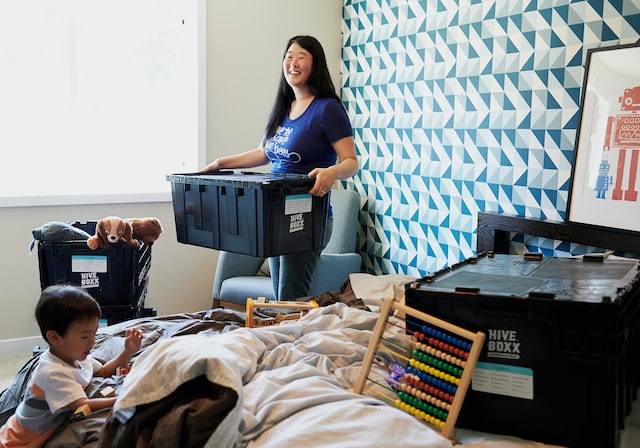When someone is struggling with an addiction, it’s important for them to be as surrounded by positive people and resources as possible. The following list of 5 resources for women trying to recover from addiction is designed to help them find practical strategies, emotional support and other women digging their way out of the trenches of addiction.
12-Step Programs
12-step programs are self-help groups based on the principles of Alcoholics Anonymous (AA). There are 12 steps, a set of guiding principles that help members achieve and maintain sobriety. The first step is admitting there’s a problem, and the second is accepting that only God can solve it. There are no fees for joining any of these programs, and most of them do not require you to be sober at all times to participate. The only requirement for membership is willingness: you must be willing to do whatever it takes to stop drinking or using drugs. That will almost certainly mean giving up some bad habits, but that’s just the beginning of what you’ll get out of these programs. You can expect to learn a lot about yourself, your strengths and weaknesses, as well as how best to deal with stressors in life — all while surrounded by like-minded people who have similar goals as yours.
Online Support Groups
Online Support Groups are similar to traditional support groups in that they provide a safe place for people struggling with addiction to talk about their feelings and experiences. However, in this case, participants communicate online through chat rooms, bulletin boards, and email lists. Some organizations also have telephone support available.
Some health insurance plans provide coverage for online support groups. In addition to this, sometimes they can even cover a portion of rehab facility programs if you need to be close to a doctor or therapist that will keep you motivated to stay away from drugs. Being surrounded by people going through the same situation can also help keep each other accountable for your own actions. You will be meeting people and speaking to people where they will make you feel as if you are not alone.
Online Support Group meetings are facilitated by trained volunteers who have experience working with substance abusers and understand what it’s like to live with an addiction problem. They also have access to resources that help them address specific issues that members may be having difficulty with in their recovery program. Many online group leaders set up regular times when all participants log on so they can interact with each other and discuss topics that come up during their meetings.
Cognitive Behavioral Therapy
This is a form of psychotherapy that helps you identify and change the thoughts and behaviors that lead to addiction. Cognitive Behavioral Therapy is based on the idea that the way we think about ourselves, our world, and other people directly impacts our feelings, behaviors, and actions. It’s a method of changing how you think about things by changing your behaviors. This can help reduce stress, anxiety, and depression, which may lead to a decrease in substance abuse. Cognitive behavioral therapy has been shown to be effective for treating a wide range of mental health disorders like:
- Obsessive-compulsive disorder (OCD)
- Social phobia (Social Anxiety Disorder)
- Post-traumatic stress disorder (PTSD)
- Generalized anxiety disorder
Residential Treatment Center Program
Residential treatment center programs are designed for women who need a more intensive program than outpatient treatment can provide. These programs will usually last anywhere from six months to a year and may include aftercare services as well.
These women’s recovery center programs focus on providing residential care to those struggling with addiction. They offer 24-hour supervision and provide the necessary tools for recovery with the goal of helping you overcome your addiction once and for all.
In these programs, you will live at the treatment facility for an extended period of time (typically anywhere from 6 months to 1 year). The facilities are often located in secluded areas or rural settings that are far away from any distractions that could lead back to drug use.
The staff members at these facilities will help you through each step of your recovery process by providing support, guidance, counseling, and medical care as needed. Some facilities may also offer job placement assistance or education opportunities during your stay at their facility if needed.
Holistic Therapies
Holistic therapies aim to treat the whole person rather than just the symptoms of an illness or disease. Holistic therapists believe that mind, body, and spirit are interconnected and that treating only one aspect of an individual’s health may not provide total relief from illness or discomfort. Some holistic therapists incorporate energy medicine into their practice, while others focus on traditional healing methods such as herbal medicine or homeopathy.
Holistic therapies generally focus on improving physical health through spiritual practices like meditation, yoga, and prayer. Physical ailments like chronic pain can be alleviated by using these techniques because they help reduce stress levels in the body. Mental health issues such as anxiety disorders can also be treated through holistic techniques because they help individuals cope with life’s challenges more effectively.
Recovery isn’t easy, but it’s also not impossible. If you’re struggling with addiction, please get help as soon as possible. Make a choice to develop and maintain a substance-free life, and try to surround yourself with supportive people who will help you stay sober.


